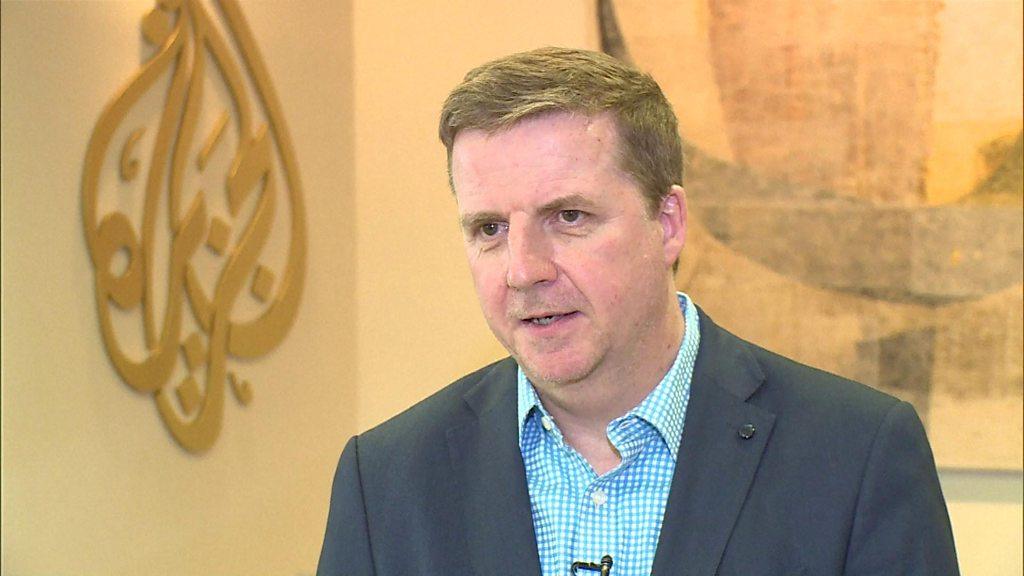Qatar facing indefinite isolation, UAE says
- Published
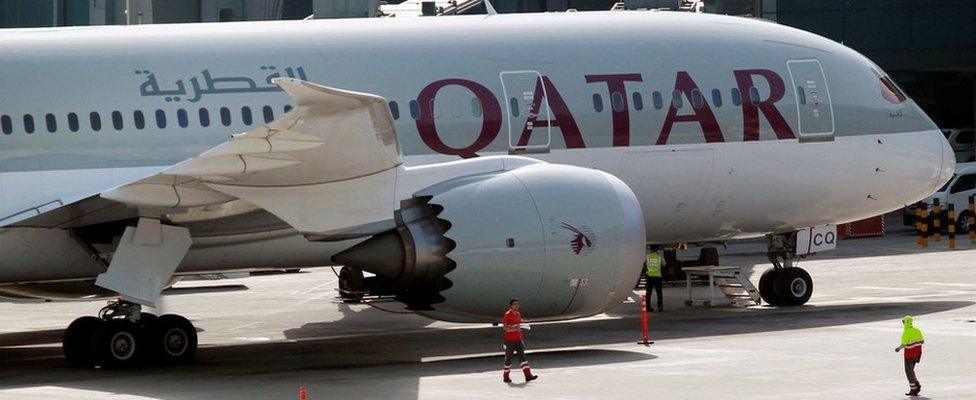
The crisis shows no sign of being resolved
With less than a week remaining for Qatar to comply with a tough set of 13 demands from its Gulf Arab neighbours, it is looking increasingly likely that this month's economic and political sanctions imposed on Qatar will become permanent.
Saudi Arabia, UAE, Bahrain and Egypt have demanded, inter alia, that Qatar stop funding terrorism - which it denies - downgrade ties with Iran and close down its Al Jazeera broadcaster, or face permanent isolation.
Qatar is not backing down.
'Cut all ties'
"Qatar is not responding positively to what we've sent," says UAE government spokesman Omar Ghobash, who, as well as being the country's ambassador to Moscow, is also the author of a counter-extremism book, Letters to a Young Muslim.
"I think the whole idea would be to ultimately, simply disengage from Qatar."

Including, I ask him, expelling Qatar from the Gulf Cooperation Council (GCC)? Not immediately, he says, but that is certainly under discussion.
Is there a risk this could escalate into a military conflict?
"Not from our side," says Mr Ghobash. "These are relatives and friends. They have a leadership that's decided to undermine us. We'll cut all our ties with Qatar, economic, political and even social as a result of the flight bans."
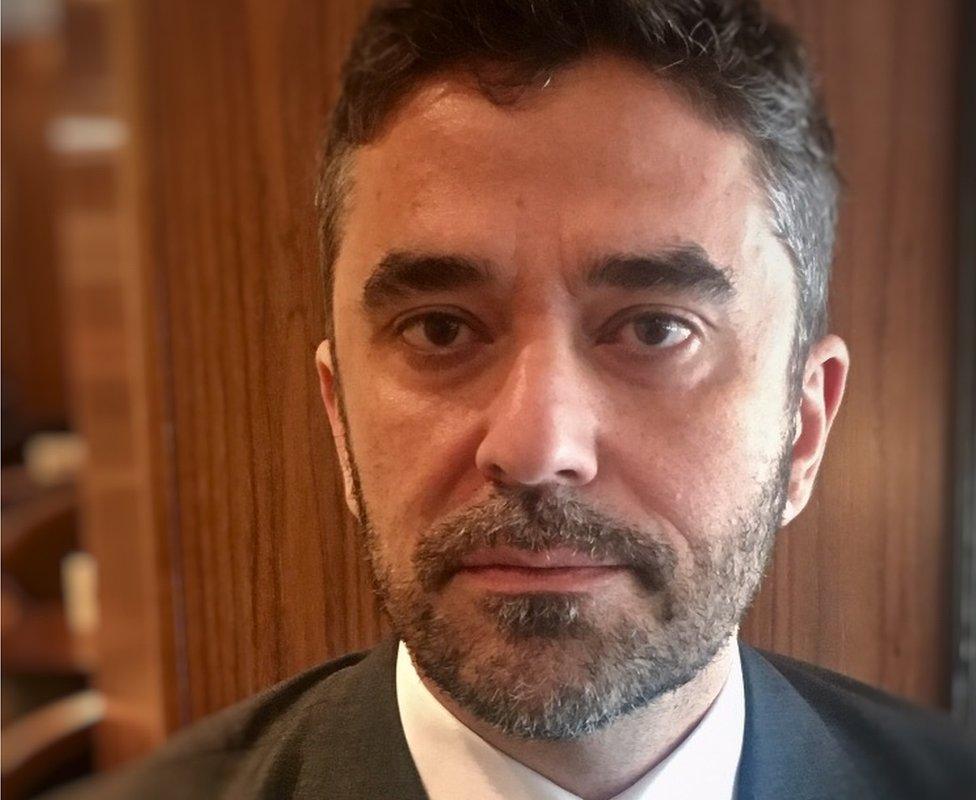
UAE ambassador Omar Ghobash played down the risk of a military confrontation
The deadline imposed on Qatar to comply runs out on Monday, 3 July. What exactly will change then, I asked Mr Ghobash.
"The difference would be that we'd no longer be interested in bringing Qatar back into the Gulf and the Arab fold," he says.
Pivot towards Iran?
So if Qatar is going to be effectively declared a pariah state by its most powerful Gulf Arab neighbours, then is there not a risk for them that this will drive Qatar into the arms of Saudi Arabia's arch rival, Iran?
"Unfortunately Qatar has been in the arms of Iran and many Sunni extremist groups for a long time," says Mr Ghobash. "So the idea of it falling into Iran's lap is something we accept [as a risk] but at least it will provide clarity to the region and we'll know who our friends and enemies are.
Iran and Turkey both share Qatar's backing for political Islam and they have both rushed to help the beleaguered Gulf state.
Turkey already has a military base there, which the Arab coalition has demanded be closed. Instead, Turkey has airlifted in armoured vehicles, which have been rolling through the capital Doha at the weekend, and has hinted it may reinforce its contingent with hundreds more troops.
This has prompted Bahrain to accuse Qatar of "military escalation".
Around the Gulf there is a degree of irritation that this spat between neighbours has ballooned into such a public and embarrassing quarrel, one which will ultimately damage the whole region's economies. I put it to Mr Ghobash that some people in the West might see this crisis as a needless squabble between dynastic monarchies.
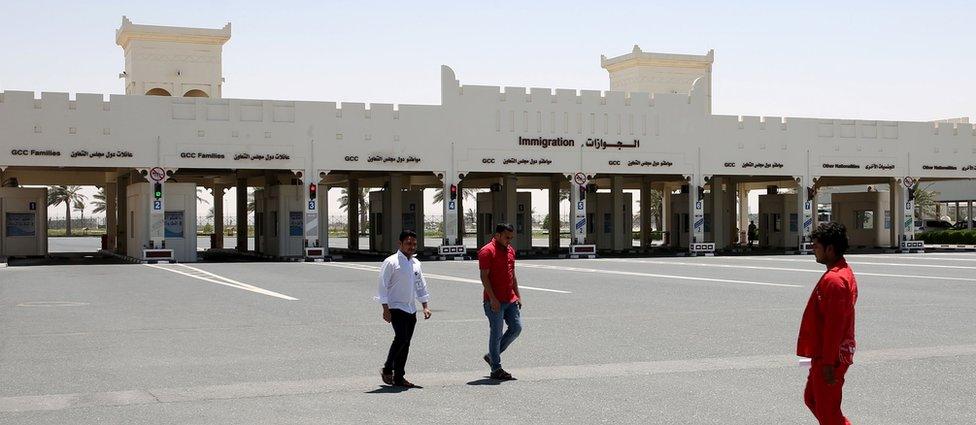
Saudi Arabia has sealed its border with Qatar
"I would say that is a complete misrepresentation of the situation," he responds. "This is not a squabble between monarchs, this is a serious conflict and a turning point in our societies… This is a principled stand that we are taking against very powerful negative narratives of Islam being funded by countries like Qatar."
For now, neutral Kuwait is trying to mediate, so far without success. But ultimately everyone knows it will be the US that has to broker a solution.
The Pentagon has more than 11,000 servicemen and women stationed in Qatar, at Central Command's forward base at Al-Udaid airbase, from which it directs most of its air operations throughout the Middle East.
Qatar is an ally of both the US and Britain, and Washington has agreed to sell Qatar $12bn (£9.4bn) worth of sophisticated F15 warplanes.
Every day that this crisis drags on adds more uncertainty to the future direction of the US-led military campaign against so-called Islamic State.
- Published16 June 2017
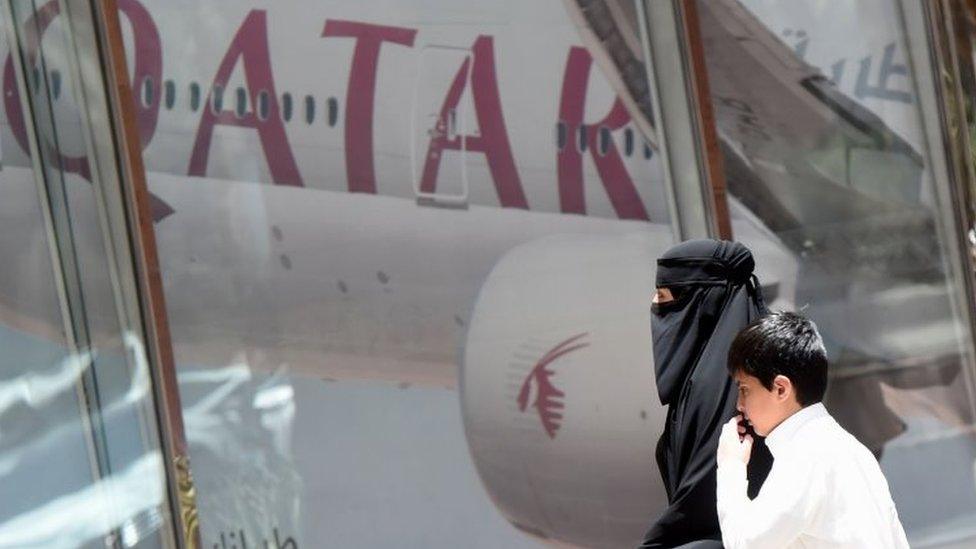
- Published13 June 2017
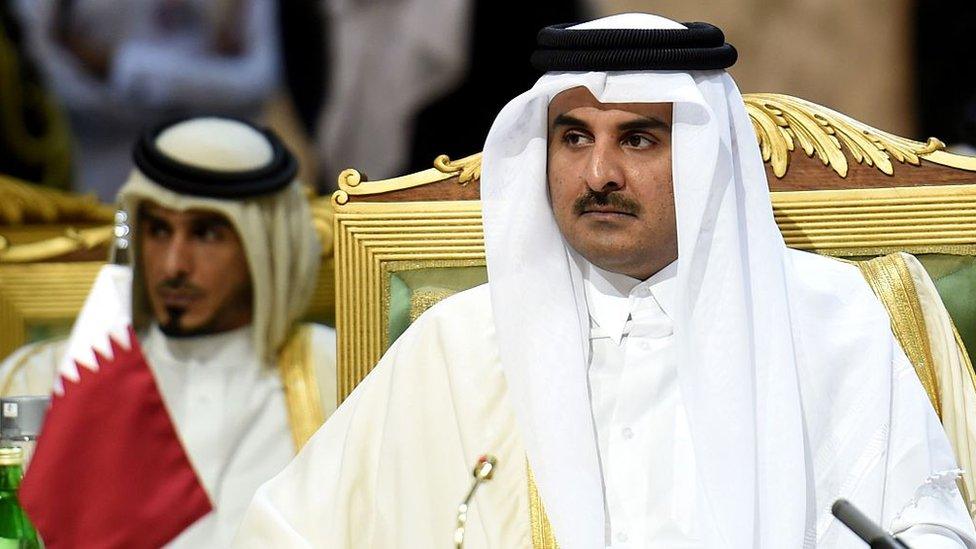
- Published5 June 2017
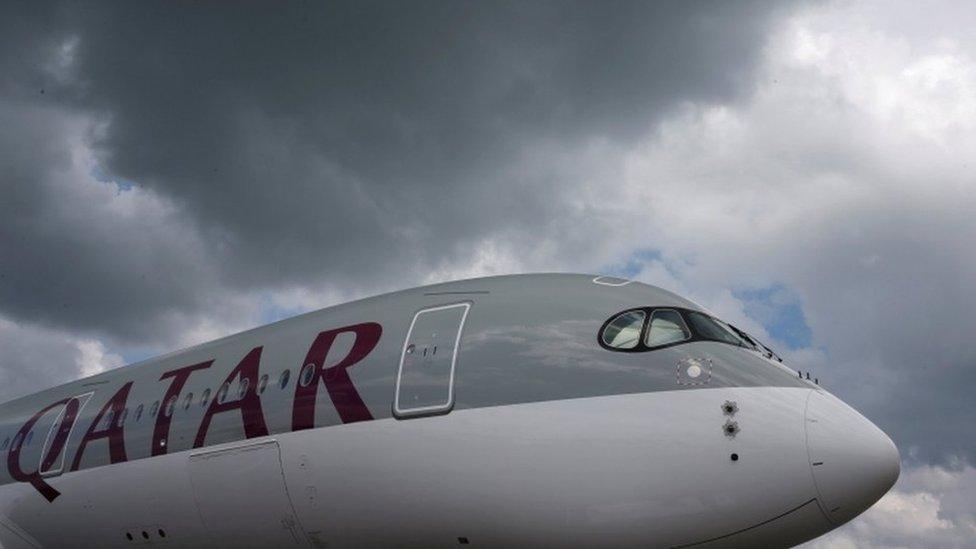
- Published7 June 2017
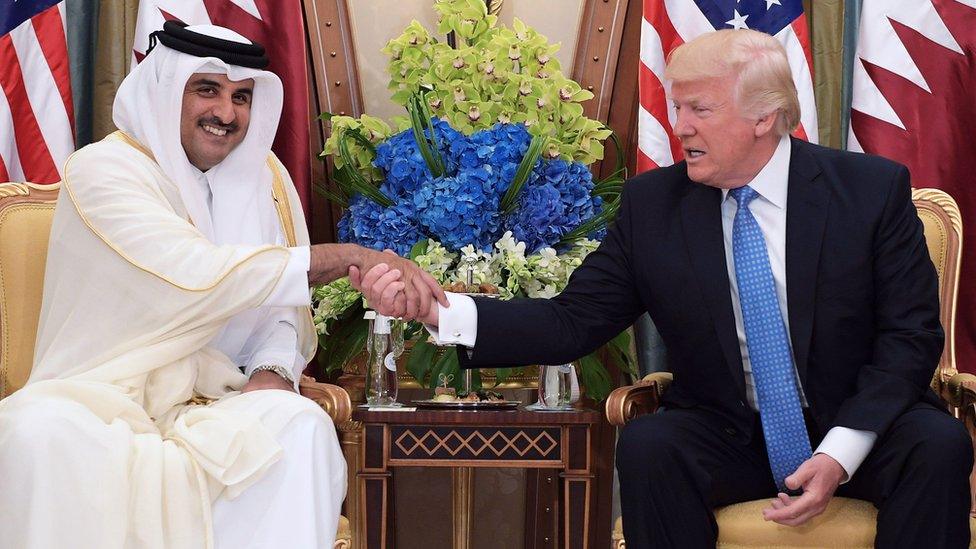
- Published25 June 2017
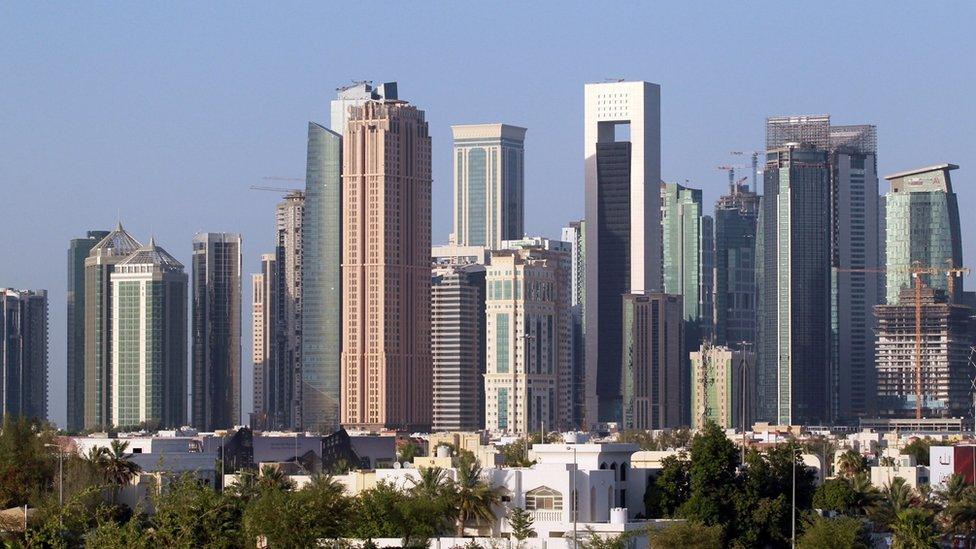
- Published23 June 2017
